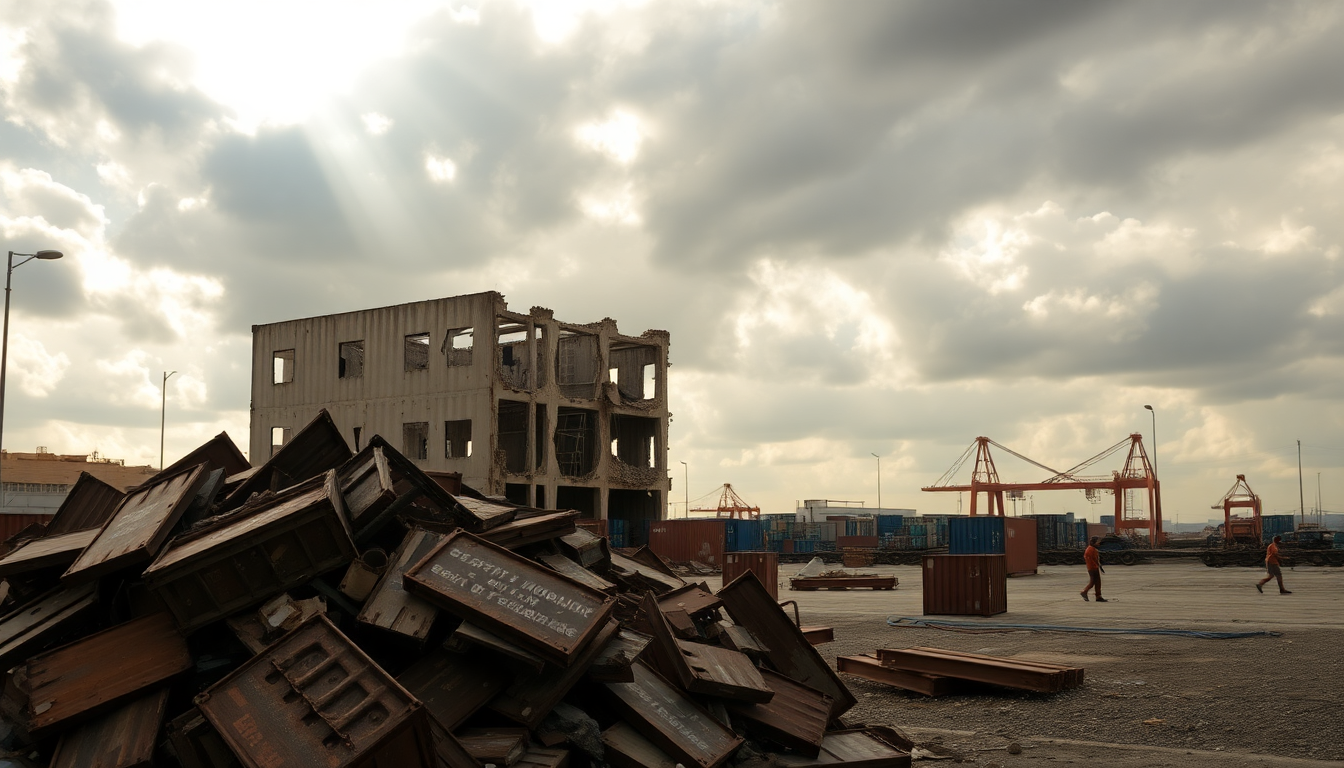Table of Contents
The tragic explosion at Beirut’s port on August 4, 2020, which claimed the lives of over 218 people, is a haunting memory for many families, especially for the loved ones of the victims. As we approach the fifth anniversary of this disaster, there’s a renewed sense of hope that the long-stalled investigation may finally be gaining some momentum.
Political interference has long plagued the inquiry, but with new leadership stepping in, there’s a promise to address the issues that have held back the search for justice.
Political interference and its implications
The aftermath of the explosion has revealed not just the devastating personal toll but also the complex web of political maneuvering that has delayed accountability.
Initially, Judge Fadi Sawan led the investigation but faced significant pushback after summoning high-profile political figures for questioning. His efforts were ultimately thwarted, and he was replaced by Judge Tarek Bitar, who has similarly encountered resistance from powerful political allies.
It’s a frustrating situation for activists and families of victims, who feel that the political elite have often slipped away from responsibility.
Among those fighting for justice is Tracy Naggear, whose three-year-old daughter, Alexandra, was tragically killed in the blast.
Tracy’s determination to uncover the truth embodies the broader sentiment among victims’ families who refuse to settle for anything less than full accountability. As she powerfully stated, “We won’t accept a half-truth or half-justice.” This unwavering resolve echoes a collective grief that has transformed into a strong demand for justice.
In early 2025, Lebanon saw the emergence of new political leadership, with President Joseph Aoun and Prime Minister Nawaf Salam pledging to prioritize the investigation into the explosion. Their promises have sparked optimism among families and activists, especially as the current Justice Minister indicates a commitment to support Judge Bitar’s investigation without interference.
This shift in the political landscape could be crucial in overcoming the hurdles that have previously obstructed progress.
Legal battles and the quest for accountability
As the legal proceedings unfold, various lawsuits have been launched against parties seen as responsible for the explosion. Notably, a group of victims, including Tania Daou-Alam, who lost her husband in the blast, is suing the US-based company TGS. Their case aims not only for compensation but also seeks to enforce accountability and transparency regarding the events leading up to the explosion. Tania has made it clear that this lawsuit is about much more than just financial restitution; it’s about demanding a thorough investigation into the chain of responsibility.
Despite the challenges faced by investigators, there have been notable developments in the inquiry. Judge Bitar has taken significant steps, calling key political figures to testify and issuing arrest warrants. However, the refusal of some individuals to comply with these summons raises questions about the effectiveness of the judicial process. Activists are calling for reforms to ensure the judiciary operates independently, free from political interference, in order to restore public trust in the legal system.
The journey toward justice is complex, marked by years of delays and resistance. For many families, this fight is deeply personal, driven by the memory of loved ones lost and a fervent desire for accountability. The hope is that with renewed political will, the investigation will finally yield answers and provide a measure of closure for those who have suffered.
Looking ahead: The importance of accountability
The recent political changes in Lebanon may represent a turning point in the quest for justice regarding the Beirut explosion. As families continue to advocate for transparency and accountability, there’s a growing recognition that pursuing justice is essential not just for the victims but for the nation as a whole. Trust in governmental institutions has been severely tested, and accountability is seen as a crucial step toward rebuilding that trust.
Legal experts emphasize that a successful investigation into the explosion could set a precedent for tackling other cases of impunity in Lebanon. Political analyst Karim Emile Bitar noted that accountability is vital for restoring faith in Lebanon’s governance. “The time has come to send a signal to Lebanese public opinion that some of those responsible, even if they are in high positions, will be held accountable,” he stated.
As the anniversary of the explosion approaches, the families of victims remain resolute in their fight for justice. They are determined not just for their loved ones but for the broader community that has been affected by this tragedy. The echoes of August 4, 2020, continue to resonate, reminding everyone of the urgent need for accountability and the relentless pursuit of truth in the face of adversity.





